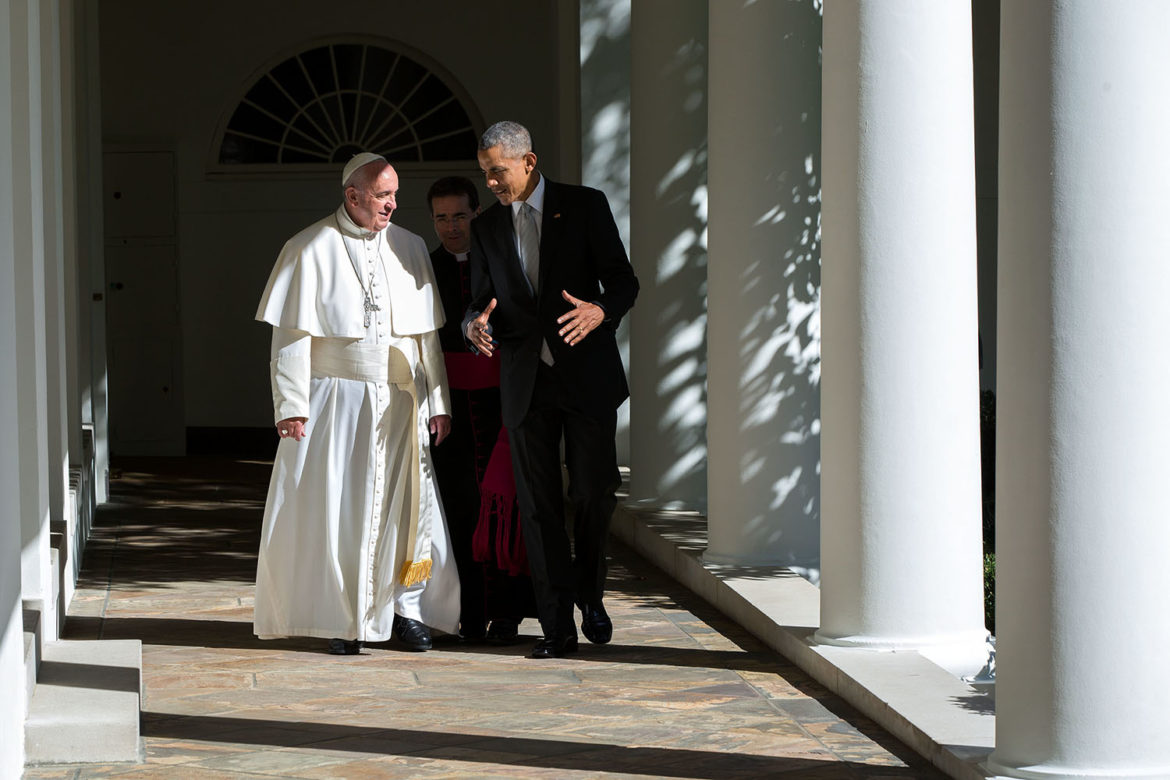If religious leaders have a constructive role to play in political life, it should be one of discomforting the powerful. In his finest moments, Pope Francis has taken this as his mandate.
Published in the October 2015 issue of the New Internationalist.
In September, Pope Francis is visiting the United States. After becoming the first pontiff in history to speak before the US Congress, he is expected to address more than a million pilgrims in Philadelphia.
If we’re lucky, the crowds assembling here will hear a message of social justice more bracing than what any Washington politician of recent memory has mustered.
‘Some people say my economic ideals are radical,’ Vermont socialist and presidential long-shot Bernie Sanders recently tweeted. ‘You should hear what the Pope is saying.’
In the US, the leaders of the Catholic Church are generally known as a conservative lot, fixated on banning abortion and opposing gay rights. During the 2004 elections, an archbishop in St Louis suggested that candidate John Kerry, a Catholic, should be denied communion because of his support for women’s reproductive rights.
In June, the president of the US bishops’ conference declared the Supreme Court’s decision to legalize same-sex marriage a ‘tragic error’ – a position that was thankfully disregarded by the majority of Americans who recognized the ruling as an overdue blow against bigotry.
Such social stances by the Catholic hierarchy remain a problem. But the church has at times played a progressive role in US politics. In 2006, when millions flooded the streets protesting legislation that would have made it illegal to provide humanitarian assistance to undocumented immigrants, Cardinal Roger Mahony of Los Angeles sided with demonstrators. He vowed to lead a campaign of civil disobedience if the conservative bill became law.
This summer a variety of Catholic leaders have denounced Donald Trump for bashing immigrants, with Bishop Kevin Farrell of Dallas warning that ‘the ghost of Nativism again prowls our land’.
It’s not merely reactionaries such as Trump who should be squirming. Over the past two years, Pope Francis has voiced a critique of capitalism that challenges even ostensibly liberal candidates such as Hillary Clinton – who, inconveniently enough, served for six years on the board of directors of WalMart.
Although he is the first pontiff from Latin America, Francis was not a devotee of liberation theology when it emerged from the Global South in the 1960s and 1970s. Nevertheless, he has consistently stressed what Catholic theologians call the ‘preferential option for the poor’.
As the Archbishop of Buenos Aires, the future Pope Francis led his country’s bishops in blasting the neoliberal economics that had thrown Argentina into crisis in 2000, decrying ‘the tyranny of the markets’.
During his time in the Vatican, he has made a condemnation of market fundamentalism central to his vision of what it means to live the Gospels today.
Speaking in Bolivia in July, he argued that the unfettered pursuit of money is ‘the dung of the devil’ and called for a global movement against a ‘new colonialism’ founded in inequality.
‘Once capital becomes an idol and guides people’s decisions, once greed for money presides over the entire socioeconomic system, it ruins society,’ Pope Francis stated. In particular, he singled out ‘corporations, loan agencies, certain “free trade” treaties, and the imposition of measures of “austerity”’ as agents of exploitation.
‘This system is by now intolerable: farm workers find it intolerable, labourers find it intolerable, communities find it intolerable… The earth itself – our sister, Mother Earth, as Saint Francis would say – also finds it intolerable.’
He concluded: ‘Let us not be afraid to say it: we want change, real change, structural change.’
A variety of politicians will no doubt view the pontiff’s stop in Washington as an opportunity to shake hands and take cheery photos. But they do so with wax in their ears. If religious leaders have a constructive role to play in political life, it should be one of discomforting the powerful. In his finest moments, Pope Francis has taken this as his mandate. What better occasion to continue than a trip to America?
__________
Photo credit: Alejandro Alvarez / Wikimedia Commons.
